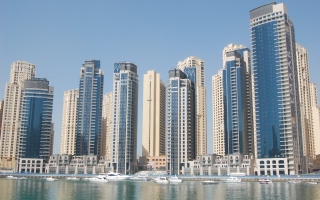- City Fajr Shuruq Duhr Asr Magrib Isha
- Dubai 05:15 06:32 12:06 15:10 17:35 18:51
The Abu Dhabi Education Council (Adec) unveiled its report card for the emirate’s private schools, highlighting how most schools displayed a significant improvement.
Conducted by the education regulatory authority’s Private Schools and Quality Assurance Sector (PSQA), the inspections have been conducted twice – once between 2009 and 2011, and the second between 2011 and 2013.
The first inspection results show 11 per cent of the schools were in ‘band A’ (high performing schools), 17 per cent in ‘band B’ (satisfactory schools), and 72 per cent in ‘band C’ (in need of significant improvement).
The numbers changed during the second round of inspections, showing significant improvement.
Fifteen per cent of private schools were in ‘band A’ (high performing schools), 19 per cent in ‘band B’ (satisfactory schools), and 66 per cent in ‘band C’ (in need of significant improvement).
According to the stats, 43 schools jumped one degree, 36 schools jumped two degrees and 18 schools jumped three degree on the eight-point scale within the two years cycle.
Explaining the marking system adopted in the inspections, Engineer Hamad Al Dhaheri, Executive Director at PSQA, said, “Inspectors use grades on an eight-point scale when assessing quality against each of the performance standards. 1 is for ‘outstanding’, while 8 is considered ‘poor’.
“The marks are then totaled and categorized into bands – band A is given to high performing schools that are graded 1 to 3, band B is for satisfactory schools securing grades 4 to 5, while band C is for those schools that score grades 6 to 8.”
He detailed that the school inspections were conducted over four-days and the number of inspectors allotted according to the size of the school.
“Adec inspectors visited over 10,000 classes and conducted several interviews with students and staff. The schools were then required to submit a school development plan within 30 days from the issuance of the final evaluation report.
In an effort to involve parents in the evaluation process, parents were asked to fill out questionnaires pertaining to their children’s schools.
All these information were collected and consolidated in marking the school report card, he added.
Dr. Mugheer Al Khaili, Director-General of Adec, explained that the inspections help identify the quality of education that schools provide, gives schools clear recommendations for improvement, assists policy making at a sector level, encourages the sharing of best practices in education and the exchange of professional expertise.
“The aim is to bring schools in line with some of the best international practices, while promoting quality and excellence both regionally and internationally.”
The key points that are checked include - student’s attainment and progress, their personal development, their protection, care, guidance and support, whether curriculum meets their needs, quality of teaching and learning, quality of school’s buildings, school’s resources and the effectiveness of leadership and management.
The report cards are available on the Adec website.
The initiative is part of Adec’s Irtiqa’a programme, where all private schools in the Emirate of Abu Dhabi are required by law to register with Adec and are normally inspected once every two years.
ALSO READ:
Eid holidays begin on Thursday, August 8... Four-day weekend?

158 Dubai property projects under review could be revived: DLD

Dubai plans to convert your garbage bin into a power plant
Win AED 600 Air Arabia vouchers EVERY DAY!
![]() Follow Emirates 24|7 on Google News.
Follow Emirates 24|7 on Google News.